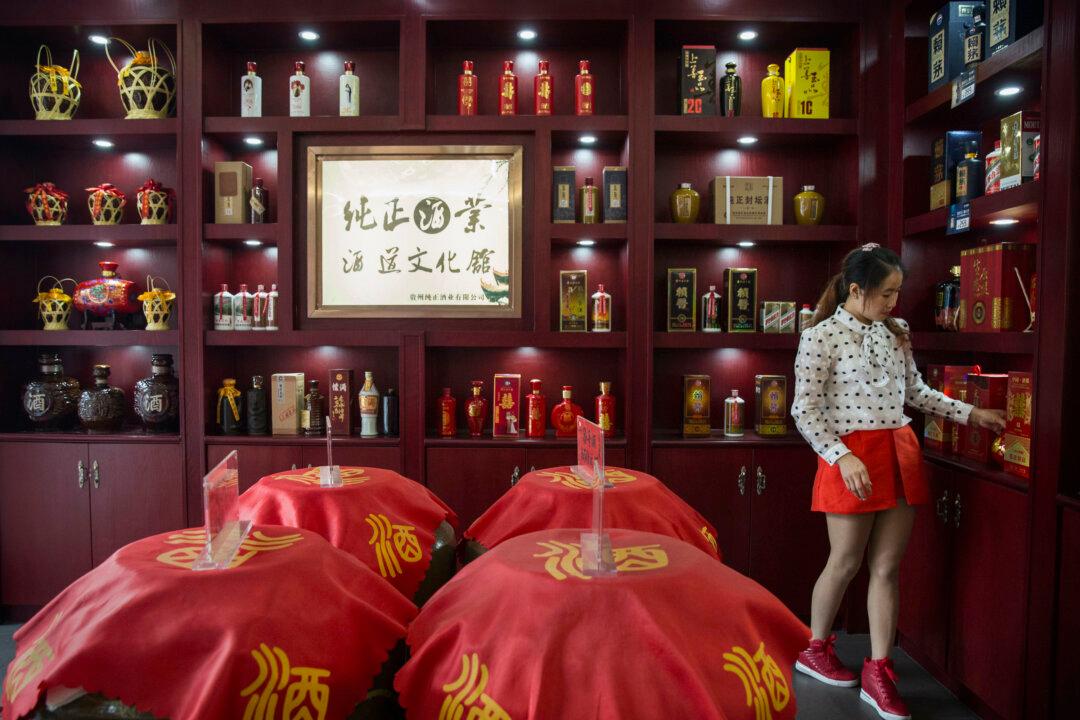Stock prices for Chinese liquor brand Kweichow Moutai have fluctuated for four consecutive trading days, causing losses to its 100,000 shareholders. Meanwhile, Moutai and other liquor giants have recently given a large amount of their stock shares to local governments that are heavily in debt. These transactions have attracted attention from Chinese media outlets.
Kweichow Moutai Co. is known for its production and sales of the famous Chinese liquor baijiu. It is a partial publicly-traded, and partial state-owned enterprise in China, and a subsidiary of Kweichow Moutai Group, which in turn is owned by the Guizhou provincial government.




